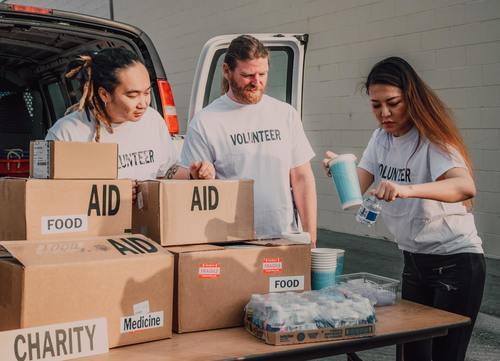
Four Ways Volunteers Embrace Self Care
Volunteers devote energy to support worthy causes, spending time outside of work and home life to feed the hungry, mentor a child, or give in another way. In fact, volunteerism has a $184 billion value, derived from nearly two million organizations, which help others in America. However, an individual who wants to make the world a better place may need to practice self-care to stave off signs of burnout, such as stress, anxiety, and exhaustion. Here are four ways volunteers may ensure excellent physical and mental health.

Physical
Food is the fuel that keeps the body moving. So eating a healthy, well-balanced diet is key to ensuring the body stays in good shape. Volunteering is work, after all, and workers may bend, lift, and stretch to help meet the requirements of whichever organization they choose to support.
Spa days are essential to keeping the stress at a minimum. Volunteers may consider Verso Skincare for improving the skin’s texture. Add the quality products to a daily skin-care routine to look and feel good. A manicure or pedicure is a high priority because it will help improve joint mobility and blood circulation.
Body exercise also helps keep the blood pumping. For example, walking or cycling helps to improve mood by eliminating stress. Low impact exercises and yoga are also good for the body and mind.
Mental
Volunteers sometimes help other people who are overcoming severe challenges. It’s important to stay grounded in healthy thought processes. Take time to relax and read to focus the mind on productive activities. Self-reflection is an essential element when giving to others. In fact, mental health is vital for ensuring the volunteer puts his best foot forward in building productive relationships while helping others.
Emotional
A volunteer must consider his own emotional state to ensure that he can handle extra duties from donating time. Some emotional self-care options include meditation, counseling, and artistic expression in the form of music or art. In addition, emotionally stable individuals can give more to those who require assistance on telephone helplines or other volunteer activities.
Social
Building healthy connections promotes excellent physical, mental, and emotional well-being. For a volunteer, the social circle fosters feelings of belonging. As social beings, volunteers build and nurture meaningful relationships to create an overall positive mentality.
Non-profits could not accomplish strategic plans without volunteers. It’s a good thing volunteerism is on the rise, with more people donating time every year. One in four US residents volunteers to improve local neighborhoods and collectively make the world a better place.
You May Also Like

Guide To Volunteering in War or Conflict Zones
March 30, 2020
Comfy Aim’n Sportswear to Keep you Going When Volunteering
December 3, 2020


